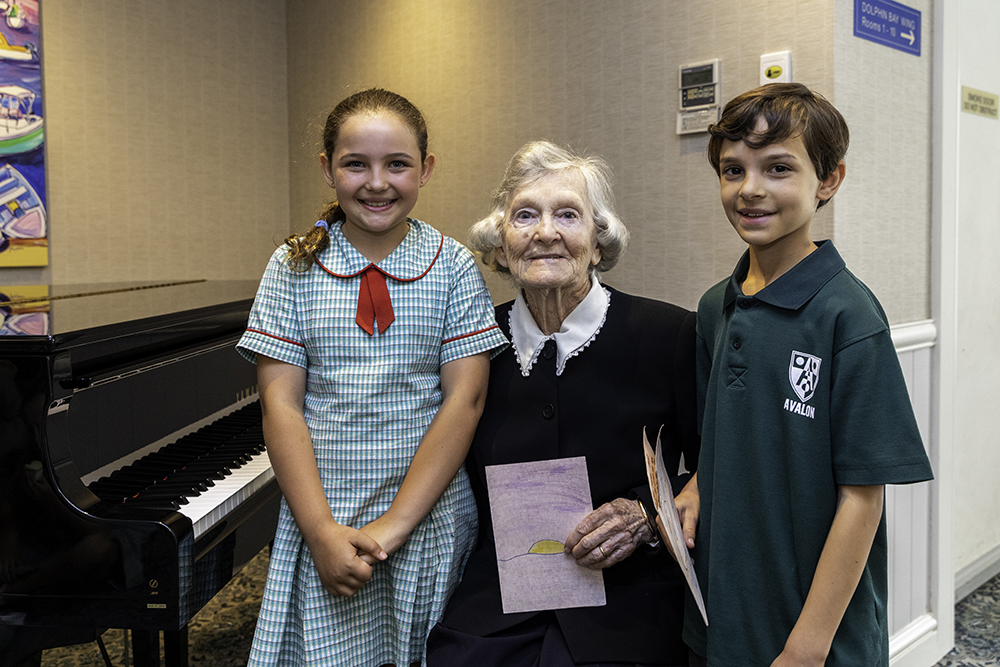Getting by with a little help from our friends
Getting by with a little help from our friends
by Natalie Peck
Thursday, December 12, 2019
The concept of intergenerational care has been gaining momentum in Australia over recent years, with more being discovered about the health and wellbeing benefits of bringing young people and older people together in shared learning and care environments.
As Australia’s population rapidly ages and we prepare to see people living longer with chronic conditions and complex high care needs, many in the health and aged care sectors are looking to intergenerational care initiatives to help build community understanding and awareness about the holistic needs of older Australians.
And it seems that the general public are also starting to pay attention…
The ABC’s hugely popular 'Old People's Home For 4 Year Olds', which aired nationally earlier this year, captured the nation’s interest and sparked important conversations about the way we support our most vulnerable Australians.
Billed as a “unique social experiment”, the landmark program brought together elderly people in a retirement community with a group of 4-year-olds, with a range of physical, social and neurological tasks set and assessed over 7 weeks.
The producers posed the question “Could this encounter between young and old help transform the lives of the elderly?” The answer appeared to be a resounding YES, according to quantifiable and measurable physical and mental changes of the participants tracked during the course of the experiment.
On the Northern Beaches of Sydney NSW, primary school students have also seen first-hand what can be achieved when we venture beyond traditional age-related social barriers.
Four schools in the area recently signed up to be a part of the Northern Beaches Dementia Alliance’s ‘Dementia Friends’ program, which was created by Dementia Australia to empower students to make a difference in the lives of the people they know with dementia and create ‘Dementia Friendly’ communities.
Over 300 Primary school students in Years 3 to 6 recently participated in a series of workshops to help learn about dementia and what it means to live with dementia. By participating in the workshop, students are certified as Dementia Friends, with the view that they take the skills they learn back into their neighbourhoods and family settings.
“The incidence of dementia is increasing in our community. It is important to equip and educate the next generation with knowledge and understanding to create a supportive community environment,” said Dementia Friendly Community Project Manager from Your Side Australia, Ilsa Bird.
“Intergenerational education assists older people to build meaningful relationships with younger people, breaks down negative stereotypes and helps younger people build positive perceptions of older people.”
As part of the initiative, “Dementia Friends” primary schools are also participating in an intergenerational music program, with their choirs performing for local aged care facility residents, creating opportunities for students to connect with older people who can often feel isolated in care settings.
“Music activities have the potential to improve mood and the overall quality of life of people living with dementia as well as reduce the severity of anxiety, agitation and depressive symptoms,” said Ms Bird.
“Intergenerational music activities produce significant improvement in self-esteem, communication skills and social engagement for younger and older participants as well as improved quality of life and connection to the community for people living with dementia.”
And it seems that the participants agree.
“It brightens your day,” said Jeanette Cohen, a resident from Avalon House.
“I am very happy when the children come in and everyone else is too because a lot of us have grown-up children and grandchildren, you are not really that in touch with young people like you were when you were young.
“Sometimes they sing and play the old songs and the residents sing along. It makes everyone happy. There’s nothing more wonderful than a choir - people singing together. It just has that special sound about it.”
But the rewards go both ways, with the students also benefitting from the interaction with their audience, according to Avalon Public School Choir Director, Jennifer Cincotta.
“In my eyes it’s quite a unique program,” said Ms Cincotta.
“The Intergen program offers our students the opportunity to present their voices as a gift to residents, enriching the lives of all concerned with the unique joy that comes from music. Importantly, for many of our students, it is a chance to make connections with members of the community with whom they may rarely come into contact.”
Watch more about the Northern Beaches Dementia Alliance’s ‘Dementia Friendly’ community program in the video below.
For more information about the Northern Beaches Dementia Alliance’s ‘Dementia Friendly’ community program visit www.yourside.org.au/nbdfc or contact dementiafriendly@yourside.org.au

